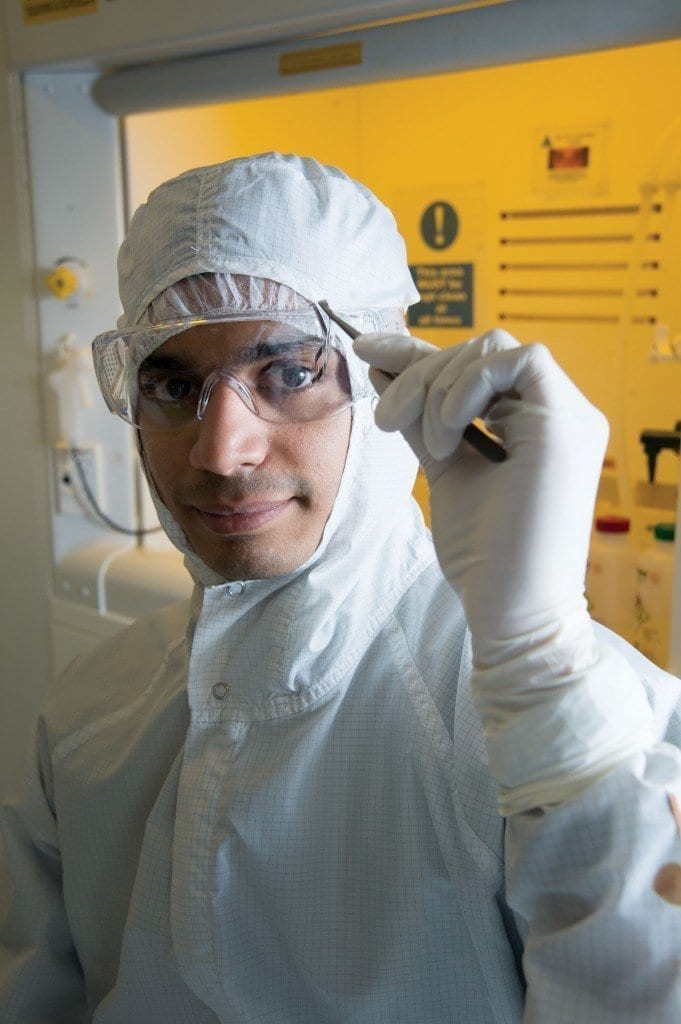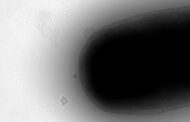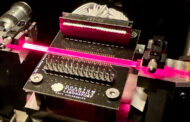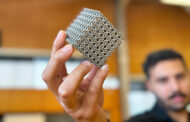
Dr Sharath Sriram, RMIT University
RMIT University researchers have brought ultra-fast, nano-scale data storage within striking reach, using technology that mimics the human brain.
The researchers have built a novel nano-structure that offers a new platform for the development of highly stable and reliable nanoscale memory devices.
The pioneering work will feature on a forthcoming cover of prestigious materials science journal Advanced Functional Materials (11 November).
Project leader Dr Sharath Sriram, co-leader of the RMIT Functional Materials and Microsystems Research Group, said the nanometer-thin stacked structure was created using thin film, a functional oxide material more than 10,000 times thinner than a human hair.
“The thin film is specifically designed to have defects in its chemistry to demonstrate a ‘memristive’ effect – where the memory element’s behaviour is dependent on its past experiences,” Dr Sriram said.
“With flash memory rapidly approaching fundamental scaling limits, we need novel materials and architectures for creating the next generation of non-volatile memory.
“The structure we developed could be used for a range of electronic applications – from ultrafast memory devices that can be shrunk down to a few nanometers, to computer logic architectures that replicate the versatility and response time of a biological neural network.
“While more investigation needs to be done, our work advances the search for next generation memory technology can replicate the complex functions of human neural system – bringing us one step closer to the bionic brain.”
The Latest on: Nano-scale data storage
[google_news title=”” keyword=”Nano-scale data storage” num_posts=”10″ blurb_length=”0″ show_thumb=”left”]
via Google News
The Latest on: Nano-scale data storage
- Revolutionizing memory technology: multiferroic nanodots for low-power magnetic storageon April 25, 2024 at 5:00 pm
(Nanowerk News) Traditional memory devices are volatile and the current non-volatile ones rely on either ferromagnetic or ferroelectric materials for data storage. In ferromagnetic devices, data is ...
- When nano- meets climate technologyon April 22, 2024 at 4:59 pm
Hydrogen is expected to contribute 10% of that mitigation. In fact, efficient, cost-effective, and safe storage and transportation of hydrogen could enable its use in place of fossil fuels. There is a ...
- Lithium Americas: More Ridiculousness After Public Offeringon April 22, 2024 at 6:15 am
Lithium Americas' stock dropped sharply after a public share offering. Check out if LAC stock is a buy and where does this go long-term.
- New quality forces crucial to industrial, tech transformationon April 21, 2024 at 6:25 pm
The core element for developing new quality productive forces is scientific and technological innovation, which is crucial for China to promote development, improve its competitiveness, determine the ...
- vivo V30 Pro 5G Review: Elevating Design, Performance, and Camera Excellenceon April 19, 2024 at 2:49 am
In this in-depth review, we'll delve into every aspect of the vivo V30 Pro, from its sleek aesthetics to its innovative camera system and robust hardware.
- Wrap-Up of Federal and State Chemical Regulatory Developments, April 2024on April 18, 2024 at 5:00 pm
Publish an advance notice of proposed rulemaking (ANPRM) concerning lead for wheel-balancing weights (lead wheel weights); and By December 31, 2024, either sign a proposed rule regulating lead wheel ...
- Q2 AI Watch: 3 Stocks to Keep Your Eyes On Nowon April 17, 2024 at 10:00 am
While investors’ eyes remain glued on the big names in artificial intelligence, endless other companies are integrating AI technology more quietly. Not every company actively chooses to rebrand as an ...
- Inside Trakc’s tech triumph: Pioneering the future of urban logisticson April 17, 2024 at 6:30 am
EXCLUSIVE: We sit down with Trakc founder Rayan Fakih to discover the technology that is setting new standards for efficiency and agility in crowded city landscapes. Inside Trakc's tech triumph: ...
- Fuel Cells Market CAGR of 23.4%, Trends, Size, Share, Growth Status, and Forecast 2024 to 2032on April 16, 2024 at 3:52 pm
Report Ocean recently published a research report titled “Fuel Cells Market” 2024 Forecast to 2032 Analysis by Market Trends.” This study delivers accurate economic projections, worldwide evaluations, ...
- Compare 7 best crypto exchanges to buy Bitcoin in South Africa for 2024on April 16, 2024 at 5:02 am
Quickly compare all the best crypto exchanges in South Africa. Find the South African crypto exchanges that offer the lowest fees, highest limits, and best offers.
via Bing News







